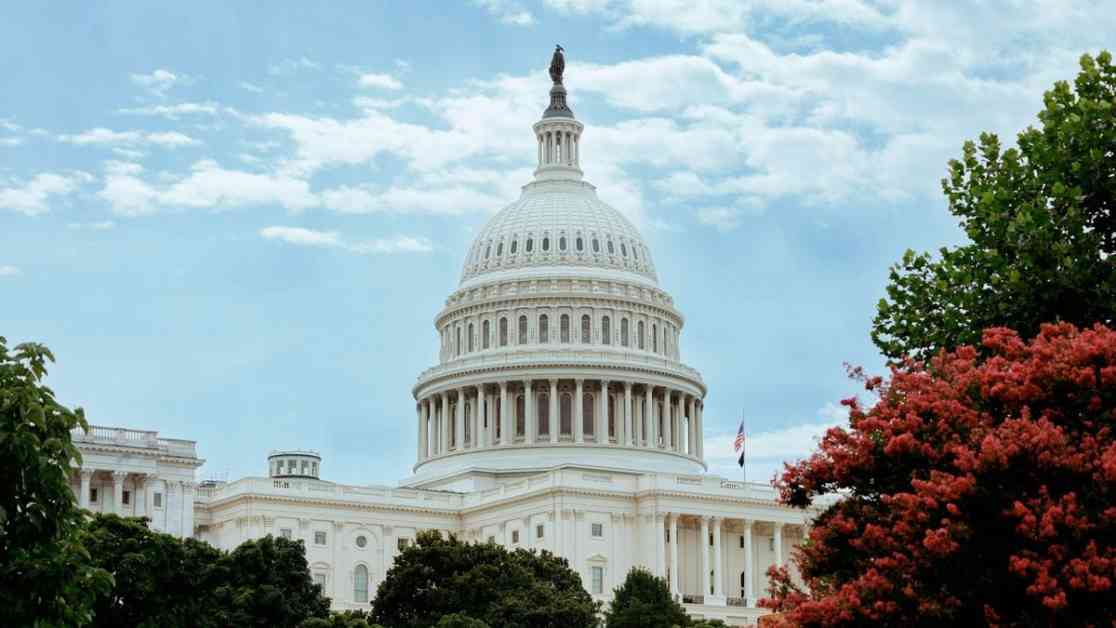In the recent 2024 elections, the Republican Party emerged victorious, securing a majority in the U.S. House of Representatives for the next two years. This win raises hopes for the implementation of comprehensive crypto legislation in the upcoming Congress and ensures a Republican trifecta for the foreseeable future. With Donald Trump’s re-election securing the White House and the party flipping several Senate seats to gain a majority in Congress, the Associated Press projected that the Republicans had secured at least 218 seats by late Wednesday.
The House of Representatives has been at the forefront of moving crypto legislation at the federal level, especially in the past year, with a majority of the 435 lawmakers passing multiple crypto-focused bills. Despite Democrats being expected to flip the House during the 2024 elections, Republicans were able to maintain their hold on the legislative body. The election of Juan Ciscomani in Arizona played a crucial role in giving the Republicans the majority they needed. As of press time, Republicans lead in several other races and may hold up to 222 seats if current results remain unchanged. However, the party is set to lose a few lawmakers as Representatives Matt Gaetz, Elise Stefanik, and Mike Waltz, named by Trump for executive branch roles, will have to resign their seats. Gaetz, who Trump nominated for Attorney General, has already submitted his resignation letter.
During the 2024 elections, the Fairshake super PAC and its affiliated PACs, Protect Progress and Defend American Jobs, provided financial support to nearly 60 House and Senate candidates, with the majority of them emerging victorious. The PAC mainly backed candidates in safe districts during the primary season to ensure their success in the general election. While a few races saw their candidates not prevailing, such as in Colorado and California, Fairshake secured wins in over 50 races, including the notable victory in Ohio’s Senate race.
Retiring Rep. Patrick McHenry, who headed the House Financial Services Committee, played a crucial role in passing the Financial Innovation and Technology for the 21st Century Act (FIT21), a bill that aimed to regulate different types of crypto assets under U.S. agencies. Additionally, the House overturned the U.S. Securities and Exchange Commission’s controversial policy, the Staff Accounting Bulletin 121, which dictated how financial institutions report digital assets held for customers. Although the SAB 121 resolution was vetoed by President Joe Biden, the FIT21 bill did not receive a Senate vote.
Looking ahead, California Democrat Maxine Waters continues to be the ranking member of the Financial Services Committee, while Republicans are in the process of selecting their caucus leader for the committee. Several lawmakers, including Andy Barr, Frank Lucas, French Hill, and Bill Huizenga, are competing for this position. Waters and McHenry had been collaborating on a stablecoin bill in recent years, and it remains to be seen if the bill will be reintroduced during the upcoming lame duck session or in the new Congress next year.
As the cryptocurrency industry continues to evolve, the outcome of the 2024 elections and the subsequent legislative decisions will have a significant impact on the future of crypto regulation in the United States. The Republican majority in the House of Representatives opens up new possibilities for comprehensive crypto legislation, and the developments in the coming months will be closely watched by industry stakeholders and enthusiasts alike.

















